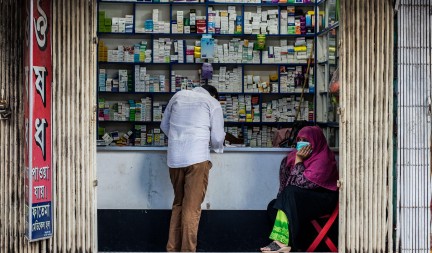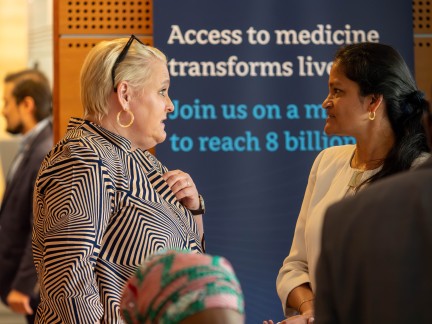How improving access to essential medicines can help reduce inequities
A stable supply of essential medicines is a prerequisite for any functioning healthcare system. Yet basic health products are all too often unavailable to people in low- and middle-income countries (LMICs), even though the vast majority of these medicines are off-patent. This gives generics companies enormous power to ensure that vital drugs are widely available and affordable where they are needed most.
Given the strides being made by science in tackling diseases afflicting rich and poor alike, the case for action has never been greater. The spectacle of poor countries struggling for a fair share of vaccines and other critical supplies during the COVID-19 pandemic underscores the shortcomings of the current system. Without decisive steps by industry and governments to close this chronic healthcare supply gap, millions of patients and their families will be condemned to more suffering, unnecessary deaths, and loss of livelihoods.
When it comes to getting crucial medicines onto pharmacy shelves in rural villages across Africa or poor areas of megacities in Asia and Latin America, the world’s generic pharmaceutical manufacturers have an unparalleled role to play. By manufacturing at scale, they can supply billions of doses of medicines that offer the same benefits as brand-name versions but at a lower cost. Indeed, their products have become a bedrock of global healthcare, given that 90% of medicines included on the World Health Organization (WHO) Model List of Essential Medicines are no longer under patent.
Yet a lack of reliable local production and disjointed supply chains mean that generic medicines are too often out of reach.
You can read Jayasree's opinion on the WEF website.


